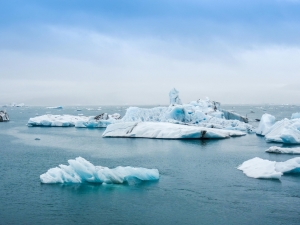Climate, Peace, and Security in Latin America and the Caribbean – A Perspective from UNDP

Speaker: Adam Forbes (United Nations Development Programme)
Date: 18 July 2024
Speaker Session Summary
SMA hosted a speaker session with Adam Forbes (United Nations Development Programme) as part of its SMA AFOE Phase III Climate Effects Speaker Series.
Since 2008, the discourse on the relationship between climate change effects, conflict, and security has significantly evolved. Mr. Forbes elaborated on how this nexus impacts Latin America and the Caribbean (LAC), one of the most vulnerable regions to climate change by describing findings from UNDP’s report “Climate, Peace, and Security in Latin America and the Caribbean – A Perspective from UNDP.” The region is projected to face more frequent and intense storms, harmful sea level rise, and a devastating 99% decline in coral reef life if global warming continues to increase. As the region contains 40% of the world’s biomass, its vulnerability to climate change is particularly alarming. Additionally, extreme heat waves pose a severe threat to the large urban populations in LAC.
The population in LAC is also at risk of climate-related displacement. Predictions estimate that between 9 to 17 million individuals worldwide will be displaced due to climate change by 2050, with low-income communities bearing the brunt of the impacts due to their limited resources. Mr. Forbes highlighted Haiti, Colombia, and Guatemala as examples of countries affected by climate change and those implementing measures to mitigate its impacts while maintaining peace and security.
Mr. Forbes emphasized the cyclical nature of the relationship between climate change, peace, and security. Climate change weakens communities, making them less resilient and more prone to violence over scarce resources. This dynamic is particularly concerning for LAC, given its already high rates of violence and organized crime. To mitigate harmful climate change effects, Mr. Forbes offered several entry points where a government or organization could help communities mitigate or adapt to climate change effects. These entry points included preparing for and addressing the root causes of climate mobility and passing conflict sensitive climate policy among others. Additionally, Mr. Forbes challenged researchers to pay more attention to under-examined small Caribbean states, which are often overlooked but are highly vulnerable to climate change impacts. By addressing the nexus of climate change, conflict, and security, LAC can better prepare for and mitigate the adverse effects of climate change, ultimately promoting peace and stability in the region.
Speaker Session Recording
This speaker session supported SMA’s Anticipating the Future Operational Environment (AFOE) Phase III project. For additional speaker sessions and project publications, please visit the AFOE Phase III project page.
Briefing Materials
Slides:
2023 Guidance Note: https://www.undp.org/latin-america/publications/guidance-note-climate-peace-and-security-latin-america-and-caribbean
Biography: Adam Forbes is UNDP´s regional climate peace and security specialist for Latin America and the Caribbean based in the Hub in Panama. He has worked for almost 20 years of experience in peace, governance and security policy and programs. Prior to his current role, Adam oversaw the UK government’s peacebuilding and illicit economies work covering the Andean countries, Brazil and the Caribbean, where he supported the Colombia peace process and started up programmes to tackle illicit deforestation. He has also worked in Nepal, and the Great Lakes Region as a conflict and humanitarian worker for the British Government and international NGOs. Adam holds an MSc in Conflict and Development from the School of Oriental and African Studies, London.
Comments